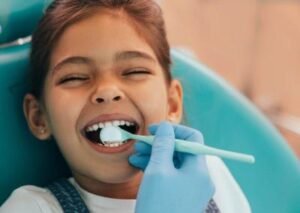At present, oral problems are relatively common in life, which is related to oral cleaning habits developed in daily life, so it is especially necessary to adjust oral care for children. There are many oral care methods for children. Only by choosing the right method can we help children protect their teeth and prevent oral diseases as soon as possible.
What should children’s oral cavity nurses notice?
- Brush your teeth
When the child has the first tooth, it is necessary to brush the child’s teeth, because at this time the child’s teeth will come into contact with food, and there will be some food left on the gums. If not cleaned, it will lead to dental plaque or teeth, which may lead to tooth decay in the child. Usually, when the child has been able to live independently, it is necessary to let the child develop a good habit of brushing teeth, and parents also play a supervisory role. - Choose the right toothpaste
For children to choose toothpaste is also standard, the general toothpaste consistency should be appropriate, and the friction should be moderate when friction because it is not easy to cause damage to children. Children are still developing, so the gums and enamel are fragile, easy to affect when brushing, so choosing the right toothbrush can play a good protective effect.
There are three differences between children’s toothpaste and adult toothpaste.
First, the sweetness of children’s toothpaste is low. Xylitol is commonly used, while lactose is used in adult toothpaste.
Second, children’s toothpaste is generally fluorine-free, to prevent children from accidentally swallowing into the stomach;
Third, adult toothpaste is used in essence, children’s toothpaste almost all use food essence.
In addition
It is recommended that children brush their teeth without toothpaste
Brushing is the process of using a toothbrush to remove dirt from your teeth. It’s just mechanical friction. The role of toothpaste in medicine is to improve the interest in brushing teeth, through different changes of drugs, fragrance and so on, toothpaste also gives people different choices.
When 2-3 years old children learn to brush their teeth, it is generally not recommended to use toothpaste, and it is best to brush directly.”
Toothpaste plays the role of a friction device. Children can not use toothpaste when brushing their teeth. If they use toothpaste, they should not use the same toothpaste for a long time to prevent oral dependence.
Make sure your child brushes his teeth for three minutes, three times a day, up and down instead of left and right. - Develop good eating habits
Children also need to develop good eating habits, as all kinds of food can accumulate in their teeth and cause a lot of bacterial growth, which increases their risk of tooth decay. When children develop eating habits, they can avoid eating high-sugar or high-calorie foods for a long time. They can also better reduce food residues and avoid oral problems. - Choose the right time to brush
If the child wants to take care of the mouth, brushing time is more critical. One class is to clean the teeth 10 minutes after eating because the PH value of the mouth is acidic at this time. If the oral cleaning is carried out in time, the acid can be avoided to erode the teeth. - Check your teeth regularly
Because the child is still in the development stage is more likely to be stimulated, so to avoid the child in the imperceptible appearance of tooth lesions or corrosion problems, it is necessary to regularly check the child’s tooth state. This is the key step to giving children oral care because most children’s oral diseases are caused by tooth lesions, so the first thing is to check the state of teeth, to prevent various diseases.
Children must carry out oral care, and choosing the right way to carry out oral care, can ensure the child’s health in the long term, in the child’s adult can also greatly reduce the probability of oral disease attack.

